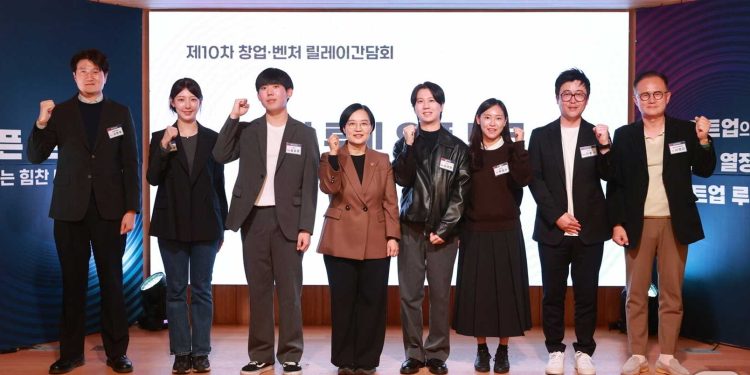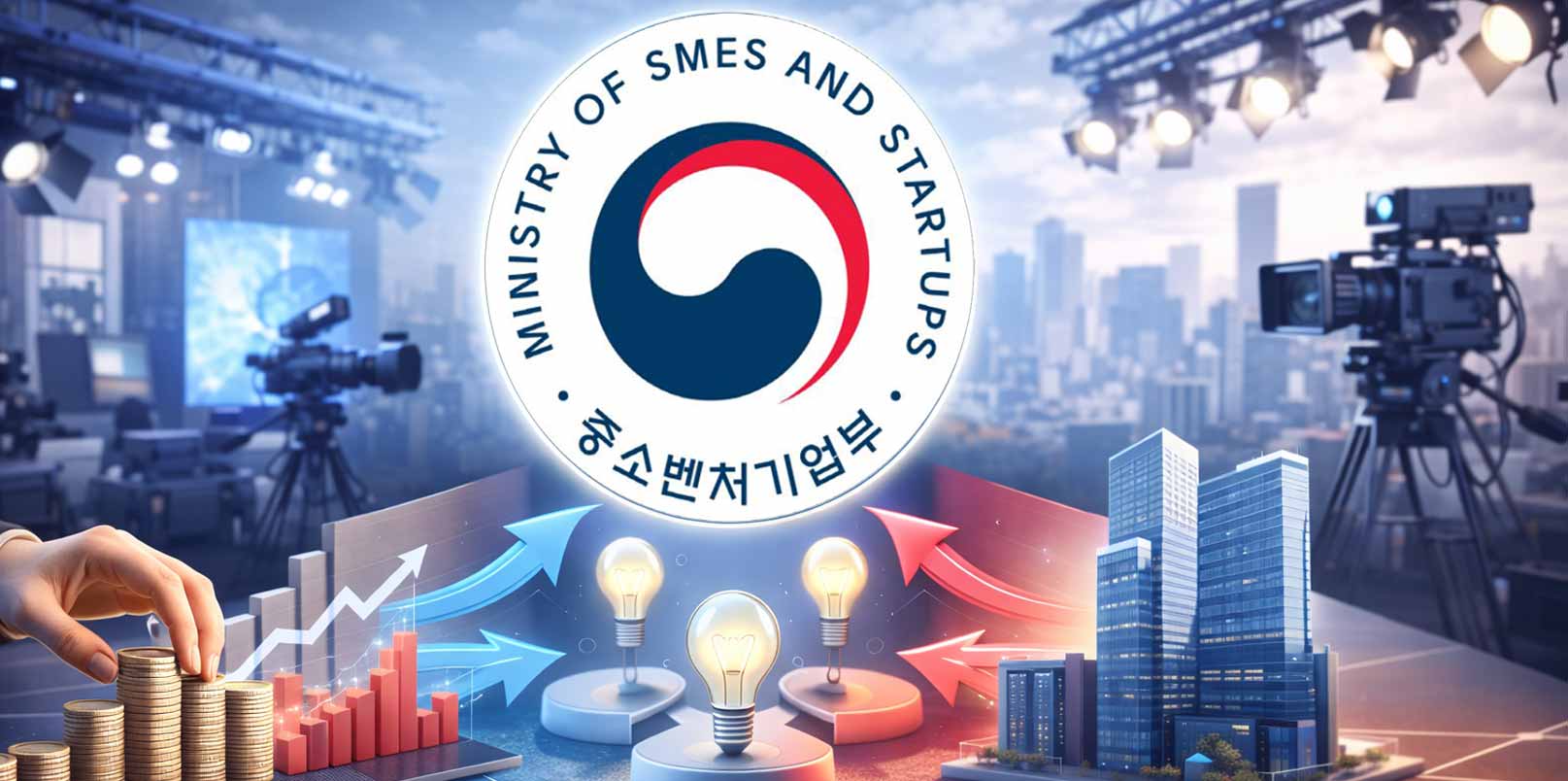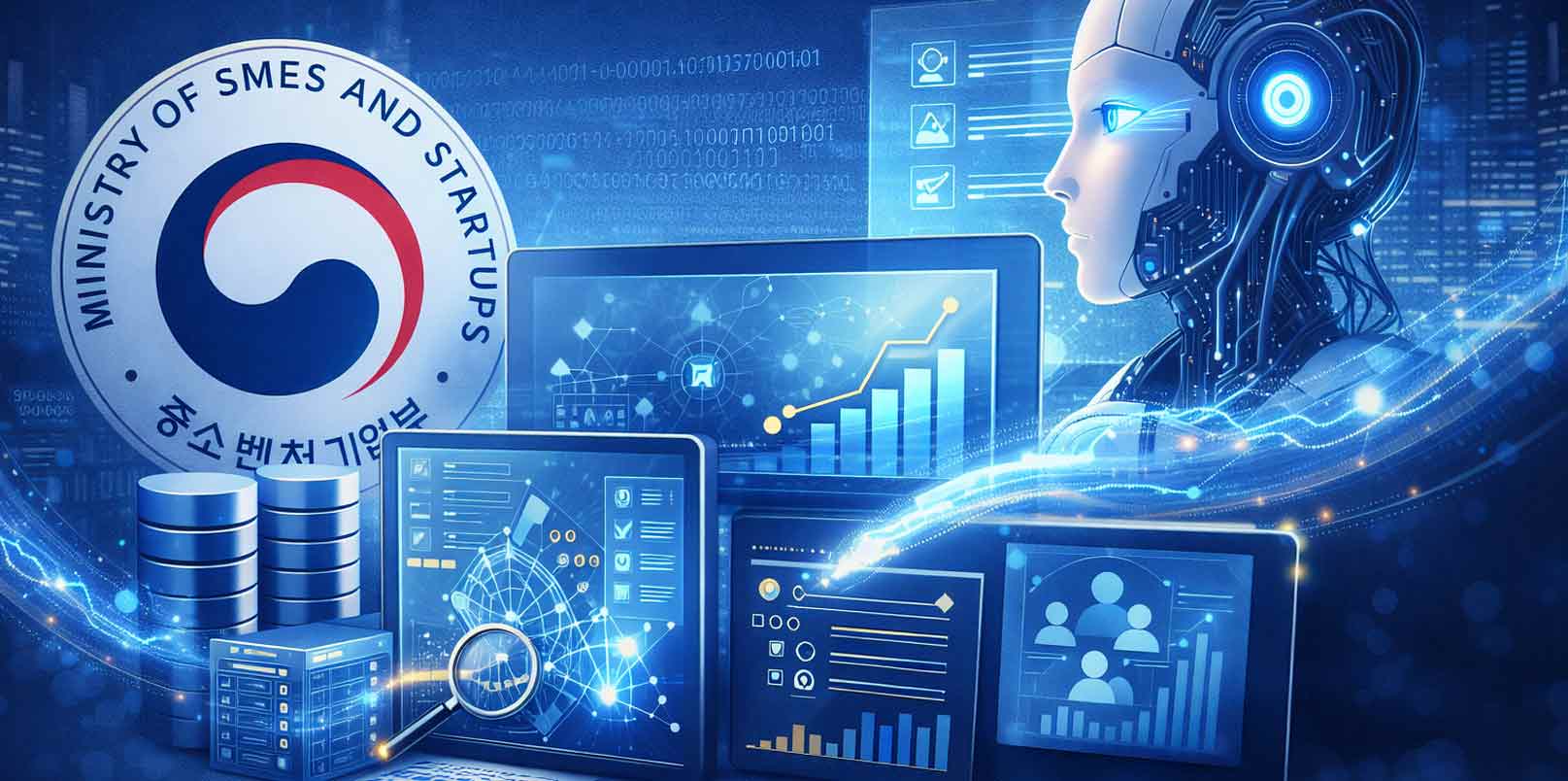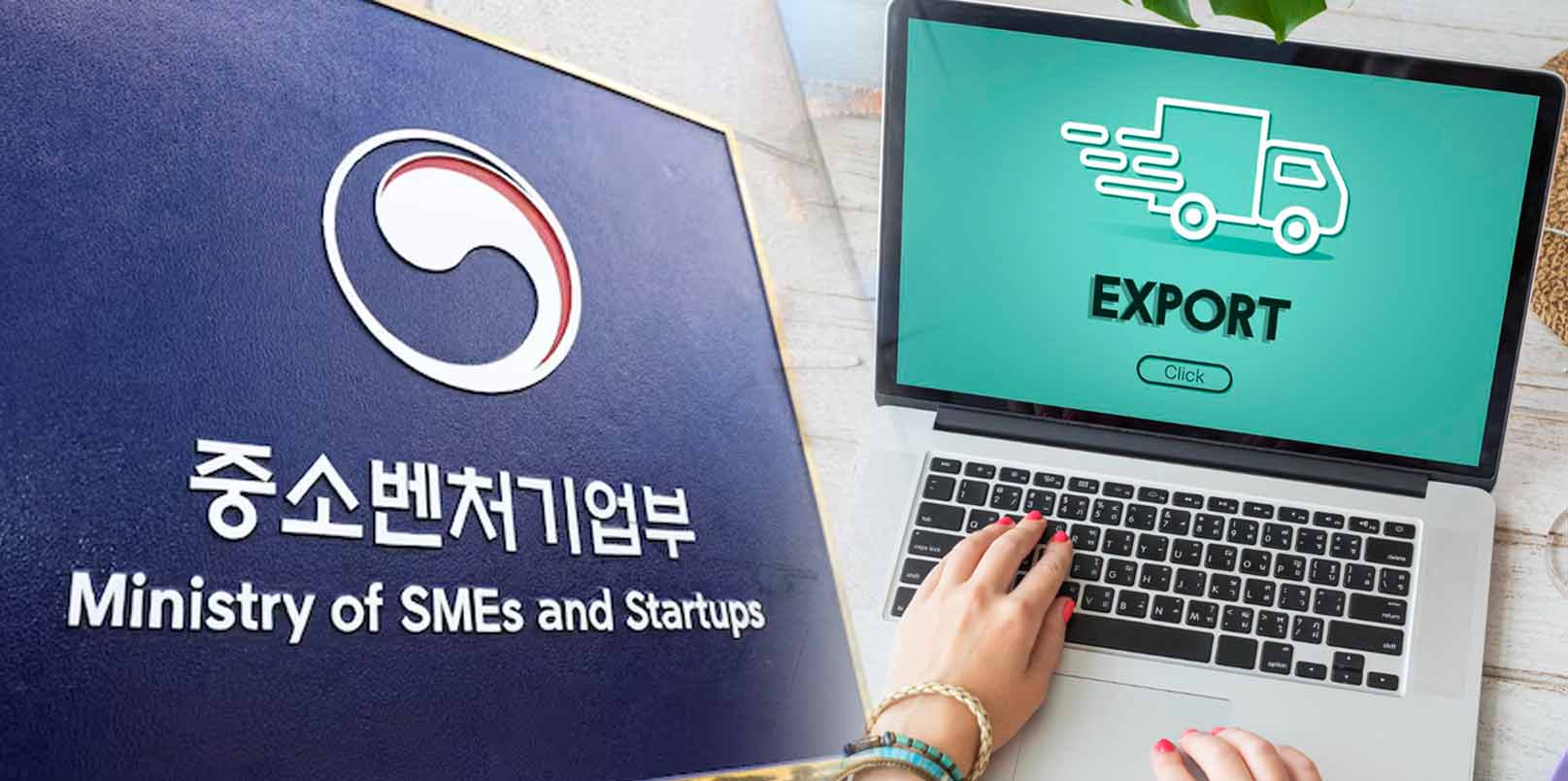Korea’s next phase of startup policy reform is targeting the earliest stage of entrepreneurship. The Ministry of SMEs and Startups (MSS) has introduced a new founder-focused framework combining national auditions, expert mentoring, and global readiness training—an approach designed to expand access beyond Seoul’s core ecosystem and prepare emerging entrepreneurs to compete internationally.
MSS Unveils “Everyone’s Startup Project” and One-Stop Support Center
At the 10th Startup and Venture Relay Meeting held at TIPS Town in Seoul on October 30, the Ministry of SMEs and Startups announced two key initiatives under its new Startup Rookie Leap Plan:
- the “Everyone’s Startup Project,” (a.k.a Startup for All) and
- the Startup One-Stop Support Center.
Through Everyone’s Startup Project, MSS plans to discover 1,000 prospective entrepreneurs nationwide, offering them a structured, audition-style pathway into Korea’s startup ecosystem. Participants will go through two stages of evaluation, culminating in a final round where 100 startup finalists will be selected.
The top-performing founders will receive up to KRW 200 million (~ USD 145,000) in support, along with access to government-linked programs. Even those not selected as top winners will qualify for additional startup assistance from MSS without further screening.
According to the ministry, the project aims to lower entry barriers for university students and regional entrepreneurs who often face limited access to startup funding and mentoring. Application procedures will be simplified, while incubation and mentorship programs will be expanded to ensure participants can refine their business models before launching.
MSS’s Director of Startup Policy Cho Kyung-won said,
“Through the audition process, participants will gain the skills to refine their ideas and strengthen their business models.”
Startup One-Stop Support Center to Streamline Founders’ Challenges
The second major initiative—the Startup One-Stop Support Center—will serve as a nationwide platform addressing founders’ most common challenges in seven key categories: legal, tax, management, regulation, operations, workspace, and networking.
The center will connect startups with 1,000 specialists who can offer targeted guidance both online and offline through the country’s Centers for Creative Economy and Innovation. An AI-based matching system, currently in development, will enhance efficiency by linking founders with the most suitable experts for their needs.
Offline consultations will begin in November across 17 regional centers, with full online integration expected in 2026 through the K-Startup Portal.
Korean Startup Founders Call for Practical Support
Early-stage founders have expressed optimism about the ministry’s renewed focus on incubation and mentoring.
Chae Ha-yeon, CEO of Danare, noted,
“When starting a company, everything feels complicated—regulations, costs, even small experiments. I hope this program provides more than funding and offers real guidance from experts.”
Park Mi-soo, founder of Local Law, added,
“Regional startups need stronger investment ecosystems to scale. It would help if these programs included more long-term survival support.”
Minister Han Seong-sook emphasized that the policy overhaul aims to support founders throughout the entire startup journey.
“The government is strengthening a system that supports entrepreneurs at every stage. These projects will lower entry barriers and increase the quality and accessibility of information founders need to grow.”
Korea’s Founder Pipeline Evolves Beyond Funding
The Everyone’s Startup Project represents a strategic shift in Korea’s startup development model—from focusing on scaling mature ventures to building a sustainable founder pipeline.
By integrating mentorship, funding, and internationalization within a single framework, MSS is rebalancing its ecosystem approach to include early-stage talent cultivation, a long-standing gap in the country’s startup infrastructure.
The new model also aligns with Korea’s broader goal of global market readiness, encouraging founders to design scalable business models and pursue exports early in their lifecycle.
Minister Han Seong-sook underscored this global perspective:
“If startups only plan for the domestic market, they will face difficulties when expanding abroad. It’s vital to start with global markets in mind.”
This strategy complements existing government-based support programs, including the latest successful GSMP at Japan IT Week 2025 as well as the K-Startup Grand Challenge, but with a more inclusive foundation that reaches first-time founders and underserved regions.
Also, it shows global investors and policymakers how Korea is institutionalizing entrepreneurship as a national growth engine. And it’s not just through capital, but through structured incubation and long-term founder development.
Building Korea’s Next Generation of Global Founders
Finally, as Korea’s startup ecosystem matures, MSS’s latest initiatives mark a pivotal shift toward inclusivity and long-term capability building.
By integrating national-scale founder discovery with mentoring and global scaling strategies, the government is positioning entrepreneurship as a viable path for students, regional innovators, and first-time entrepreneurs alike.
And in the end, when such initiatives are successful, MSS will be showing global startup community that South Korea that is not merely exporting startups but also systemizing how they are born, trained, and scaled for international success.
– Stay Ahead in Korea’s Startup Scene –
Get real-time insights, funding updates, and policy shifts shaping Korea’s innovation ecosystem.
➡️ Follow KoreaTechDesk on LinkedIn, X (Twitter), Threads, Bluesky, Telegram, Facebook, and WhatsApp Channel.






